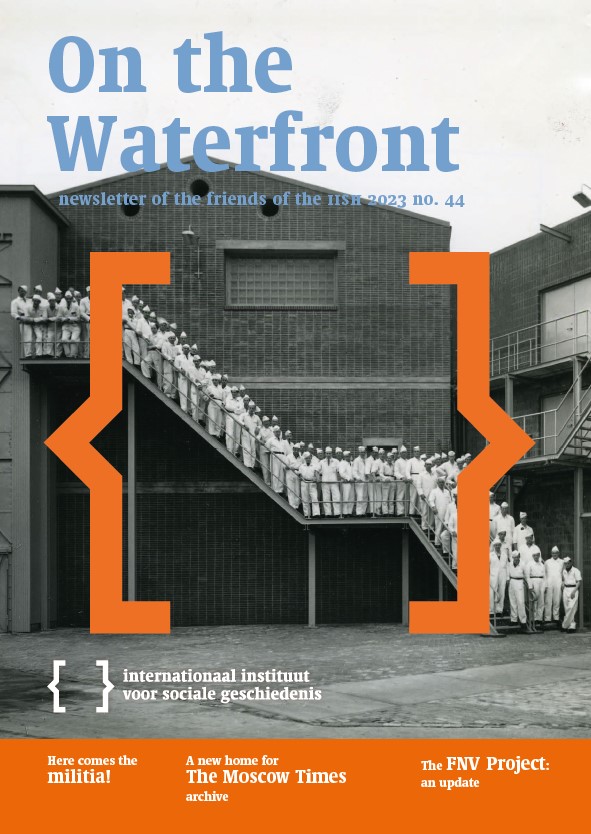On the Waterfront 44
On the Waterfront is the semi-annual magazine of the IISH. This is issue 44 (2023)
On the Waterfront : newsletter from the Friends of the IISH
Authors: Aad Blok
Place of publication: Amsterdam
Year: 2023 / Issue: 44 / Format: 16 pp.
In the first half of 2023 IISH resumed an activity that the pandemic had rendered impossible since 2020: organizing a large international conference where participants meet in person. From 12 to 15 April, the 14th European Social Science History Conference (ESSHC), organized by IISH’s Els Kuperus and Ineke Kellij-Vos, with support from Astrid Verburg and many other colleagues, brought together over 1,200 people in Gothenburg. It was good to see that gathering to discuss new social science history research remains as appealing as it was at the previous conference in Belfast in 2018. The IISH was present again with our own stand, where buttons produced on site were in great demand. This ESSHC was also the last one for Ineke, who retires this summer. Three new books have been published by IISH researchers in the past half year, each one an important contribution to the growing field of Global Labour History. Rossana Barragán edited with Paula Zagalsky Potosí in the Global Silver Age (16th—19th Centuries) (Brill, 2023), which explores the political economy of silver production and circulation, illuminating a vital chapter in the history of global capitalism. In May, the first volume in the new, open access IISH book series Work Around the World: Studies in Global Labour History was published by ucl Press, London. In The World Wide Web of Work: A history in the making, former Director of Research and currently IISH Research Fellow Marcel van der Linden discusses core concepts such as ‘capitalism’, ‘workers’, and ‘coerced labour’, explores connections between labourers in different parts of the world, and addresses the many forms of resistance and acquiescence among workers in a book that may be considered the sequel to his seminal Workers of the World (2008). Finally, IISH senior researcher Ulbe Bosma published The World of Sugar: How the Sweet Stuff Transformed Our Politics, Health, and Environment over 2,000 Years (Harvard University Press). In a presentation at the Friends’ meeting in June of this year, he will explain how the transformation of sugar from a luxury commodity into a major source of calories had major consequences: large-scale plantation slavery and forced labour, massive environmental damage, and by now an uncontrollable obesity pandemic.
Aad Blok



